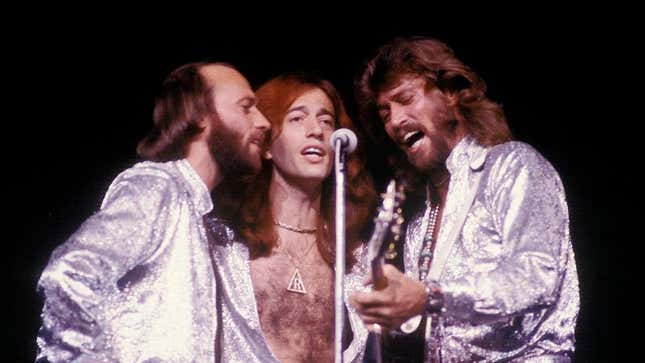
NEW YORK—In perhaps the most comprehensive analysis yet of the genre’s lyrical content, a Columbia University study published Friday found that very few disco songs have been written about daytime.
The survey, which encompassed every known disco album or single released from 1973 through 1980, determined that the once-popular dance music celebrated the night, the nightlife, and boogieing till the break of day far more frequently than it did the hours between sunrise and sunset.
“We found extensive evidence of disco behaviors starting in the evening, peaking around midnight, and continuing until the sun comes up, but virtually no indication that such activities were ever engaged in beyond that point,” said lead author and musicologist Christopher Choy, adding that even the most passionate disco vocals stopped short of urging people to dance past dawn. “As far as we can tell, the hours of 6 a.m. to 6 p.m. hold almost no interest whatsoever for the average disco diva or anyone else connected to that style of music.”
“In fact, there wasn’t a single track that endorsed letting the groove take control while it was still light outside,” Choy added.
For the study, researchers cross-referenced the lyrics of thousands of disco hits—particularly key phrases such as “got to give it up,” “burnin’ up the dance floor,” and “disco trance”—with various times of day. While their work uncovered many intersections between common disco phenomena and nighttime, researchers told reporters that none of the songs exhorted listeners to get down to the new dance craze during normal business hours.
“We searched the entire Bee Gees catalogue, as well as Andy Gibb’s three studio albums, to see if we could find any mentions of typical daytime activities such as going to the bank or being stuck in rush-hour traffic, but there was nothing,” said researcher Gina Young. “Likewise, we couldn’t find any reference to mowing the lawn from Donna Summer, Chic, or KC and the Sunshine Band.”
“We did discover a small number of songs that defied the overall trend by mixing traditional disco themes with daytime imagery, but these were largely unsatisfactory.”
“Put another way, if it’s 9 a.m., it’s very unlikely anyone’s offering to take you higher and higher,” added Young.
According to the researchers, the range of time with which the majority of disco songs is concerned can also be narrowed down further by the fact that the musical events portrayed typically take place not on regular weeknights, but during the late hours of Friday and Saturday, a period that reportedly accounted for virtually every call to boogie-oogie-oogie.
“We did discover a small number of songs that defied the overall trend by mixing traditional disco themes with daytime imagery, but these were largely unsatisfactory,” said researcher Todd Levy. “Rose Royce’s ‘Car Wash’ implies a daytime setting, but there’s no solid evidence its lyrical content is concerned with anything other than the pros and cons of being employed at that particular establishment, while Thelma Houston’s ‘Saturday Night, Sunday Morning’ merely uses the day as a framing device for discussing the disco seduction that took place entirely during the previous night.”
“And while we can safely infer that half the hours in Barbara Pennington’s ‘Twenty-Four Hours A Day’ occur during the daytime, no one can disco-dance that long, which suggests the song is purely a hyperbolic exercise and in no way explicitly daytime-themed,” continued Levy.
At press time, the researchers said their follow-up study would attempt to catalogue how many disco songs concerned relaxing at home, as suggested by references to playing board games and kicking back on the porch.